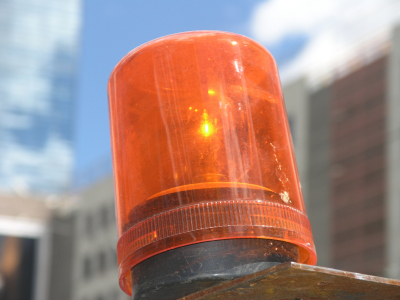 I used to tell people that I was a “champion worrier” recognizing that worrying was something I shouldn’t do, but also finding that it was one of those sins that people tend to “accept.” Later, realizing that God found it very unacceptable regardless of what others thought, I decided I should work on not worrying rather than spending time talking about how good I was at it. God was faithful, and I found that the more my trust in Him grew, my propensity for worry was reduced. After all, at its root worry is a decision to trust in what I know and what I can do, rather than trusting in the Almighty King. When I place my full confidence in the One who created and maintains the universe, I have no reason to worry.
I used to tell people that I was a “champion worrier” recognizing that worrying was something I shouldn’t do, but also finding that it was one of those sins that people tend to “accept.” Later, realizing that God found it very unacceptable regardless of what others thought, I decided I should work on not worrying rather than spending time talking about how good I was at it. God was faithful, and I found that the more my trust in Him grew, my propensity for worry was reduced. After all, at its root worry is a decision to trust in what I know and what I can do, rather than trusting in the Almighty King. When I place my full confidence in the One who created and maintains the universe, I have no reason to worry.
Doing this day-in and day-out is hard. The temptation to want to seize control is strong. Yet, I’ve come to realize that, like most sins, worry doesn’t have an isolated effect. It not only effects us, but our relationships as well.
There are at least three ways worry impacts those we love:
1) We don’t encourage – When we’re busy stressing over what will or won’t be, we’re not concentrating on loving those that God has placed in our lives. This means that we aren’t looking for areas in which we can encourage them, because we are too busy looking for how we might arrange and organize the things of our lives to get what we want. Worry saps our strength – and as a result, we aren’t in a position to lift others up. We’re not intent on looking for the good of the other, because we are too busy focusing on ourselves.
2) We don’t have patience – When we are anxious about what tomorrow holds, we have little patience for today. This means that if people are seemingly interfering with our ability to dictate the outcomes of our own life, our anxiety over the future commands our response, not the grace and love of God. Patience and understanding gets replaced by quick-tempers and harsh words. If we’re not willing to wait for God to act, we are less likely to wait on the work that God is doing in the lives of others as well.
3) We don’t trust – As stated earlier, at the root of worry is a lack of trust. Ultimately this is a lack of trust in God, but it effects our trust of others as well. We’re less wiling to rely on others and to believe in others, because we’re deceived into thinking that we have control. If we have control then all we need is ourselves and this mindset will slowly infiltrate how we interact with others – usually with those we love the most.
If we find that our relationships are devoid of encouragement, patience and trust, it may be because they are consumed with worry instead. We need to be intent then on not giving worry control of our lives, but to trust in the One who controls everything. After all, He is a much better God than worry will ever be.
How have you seen worry damage relationships?
